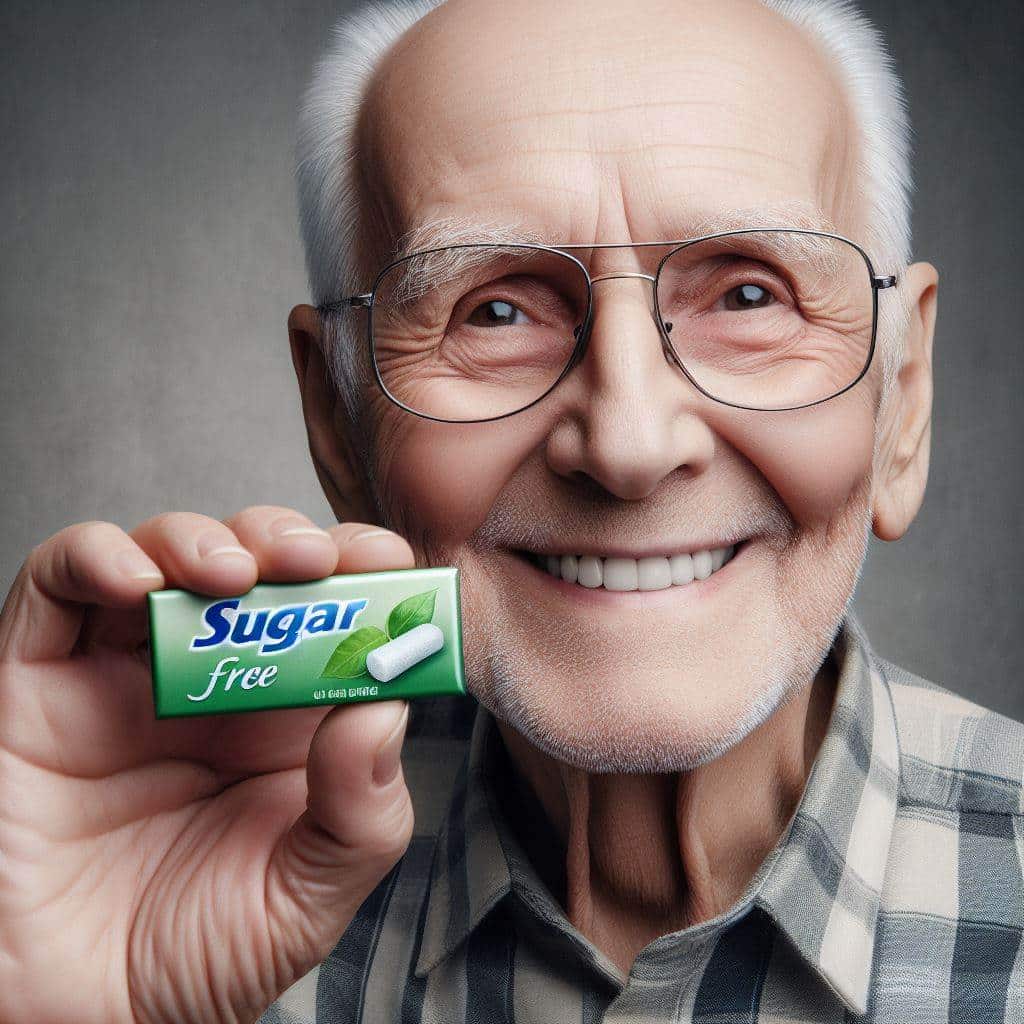Caring for seniors often necessitates a gentle, patient approach, especially when it comes to their oral health. For those with sensitive mouths, everyday dental hygiene can pose significant challenges and discomforts. This sensitivity can arise from a variety of sources, including gum recession, enamel wear, or medical conditions such as diabetes and certain cancer treatments. These factors can drastically increase the discomfort experienced during brushing or eating.
Understanding Sensitive Mouths in Seniors
A sensitive mouth in seniors can manifest as pain or discomfort when consuming hot, cold, sweet, or very acidic foods and drinks. This condition is not merely about occasional discomfort; it can lead to more severe health issues, including nutritional deficiencies and a decreased quality of life. The thinning of the mouth’s mucous membranes, a common occurrence with aging, often exacerbates sensitivity, making effective oral care both a necessity and a challenge.
Interestingly, research shows that oral health directly affects overall health, highlighting the importance of maintaining dental hygiene in elderly populations. For instance, periodontal disease has been linked to heart disease, stroke, and diabetes. Thus, providing gentle care for sensitive mouths is not only about comfort but also about preventing more serious health complications.
Gentle Cleaning Techniques
Effective yet gentle cleaning techniques are paramount for seniors with sensitive mouths. Here’s how to achieve this:
- Use a Soft-Bristled Toothbrush: Soft bristles are essential to avoid aggravating sensitive gums and enamel. They are effective at removing plaque without causing further irritation.
- Warm Water for Brushing: Using warm water to brush can help minimize discomfort associated with cold sensitivity in teeth.
- Low-Abrasion Toothpaste: Toothpastes designed for sensitive teeth typically contain compounds that help block the transmission of pain signals from the surface of the tooth to the nerve.
These methods are not only practical but are supported by dental research recommending them as part of an oral hygiene regimen for those with sensitive teeth or gums.
5 Dental Care Products for Seniors with Sensitive Mouths
Caring for sensitive mouths in seniors requires specially designed products that not only clean effectively but also provide comfort and prevent further irritation. Here’s a detailed look at some of the top-rated products suitable for seniors experiencing oral sensitivity, based on the features, benefits, and user feedback provided in the earlier table.
Oral-B Gentle Care Soft-Bristled Toothbrush
Rated at four stars, the Oral-B Gentle Care toothbrush is ideal for seniors with sensitive gums and teeth. Its ultra-soft bristles ensure that brushing doesn’t aggravate sensitive areas, while the ergonomic handle provides ease of use, especially for those with arthritis or limited hand mobility. Users appreciate the gentle cleaning action that doesn’t compromise on thoroughness, making it a staple in daily oral care routines for the elderly.
Sensodyne ProNamel Low-Abrasive Toothpaste
With a perfect five-star rating, Sensodyne ProNamel stands out as the top choice for seniors dealing with tooth sensitivity. This toothpaste is specifically formulated to protect enamel and reduce the sensitivity that can come from hot, cold, or sugary foods. It contains potassium nitrate, which helps soothe the nerves in delicate teeth, and users report significant reductions in discomfort with regular use.
Listerine Zero Alcohol-Free Mouthwash
Listerine Zero receives four stars for its alcohol-free formula that helps maintain moisture in the mouth without causing dryness. It’s enriched with fluoride to strengthen enamel and prevent tooth decay. The lack of alcohol means it’s less harsh on the mouth, which is particularly important for seniors who often suffer from dry mouth—a side effect of many medications.
Trident Xtra Care Sugar-Free Gum
Also rated at four stars, Trident Xtra Care gum is more than just a breath freshener. It’s enriched with Recaldent, a casein phosphopeptide-amorphous calcium phosphate (CPP-ACP) compound that helps strengthen tooth enamel and boost saliva production. Chewing this gum stimulates saliva flow, which is a natural defense mechanism against tooth decay and erosion, making it an excellent choice for daily use.
Biotene Oral Spray Moisturizing Dry Mouth Spray
Biotene’s Oral Spray, which earned three stars, provides immediate relief for dry mouth symptoms, which are commonly exacerbated in seniors. Its portable design allows for easy use throughout the day, offering instant moisture and relief. While it is highly effective at alleviating symptoms of dry mouth, some users wish for longer-lasting effects, which might explain the slightly lower rating compared to other products.
Each of these products has been carefully selected to address the specific needs of seniors with sensitive mouths. By incorporating these into daily routines, seniors can achieve better oral health, reduce discomfort, and improve their overall quality of life.
| Product Type | Brand | Features | Benefits | Rating |
|---|---|---|---|---|
| Soft-Bristled Toothbrush | Oral-B Gentle Care | Extra soft bristles, Ergonomic handle | Gentle on gums, reduces irritation | ★★★★☆ |
| Low-Abrasive Toothpaste | Sensodyne ProNamel | Specially formulated for sensitive teeth | Protects enamel, reduces sensitivity | ★★★★★ |
| Alcohol-Free Mouthwash | Listerine Zero | Zero alcohol, fluoride enhancement | Prevents dry mouth, enhances enamel strength | ★★★★☆ |
| Sugar-Free Gum | Trident Xtra Care | Enriched with Recaldent | Boosts saliva production, helps remineralize enamel | ★★★★☆ |
| Moisturizing Dry Mouth Spray | Biotene Oral Spray | Portable, instant relief | Alleviates dry mouth symptoms, promotes oral hygiene | ★★★☆☆ |
Dietary Adjustments for Oral Comfort
Navigating dietary choices is fundamental for seniors experiencing mouth sensitivity, as what they eat can directly influence their oral health. Optimal dietary adjustments go beyond simply avoiding temperature extremes; they require thoughtful consideration of food textures and nutritional content.
Soft, nutrient-rich foods play a crucial role in this adaptive diet. Options such as mashed potatoes, oatmeal, and well-cooked vegetables provide essential nutrients without causing irritation. These foods ease the process of chewing and swallowing, which can be painful for those with sensitive oral conditions.
Moreover, acidic foods such as citrus fruits, tomatoes, and carbonated beverages should be minimized. Acidity can aggravate sensitive teeth and gums, leading to increased discomfort and potentially exacerbating existing dental issues. Instead, focusing on less acidic, alkaline foods like bananas, melons, and cucumbers can help maintain a balance that protects against tooth enamel erosion.
Hydration also cannot be overstated. A dry mouth not only feels uncomfortable but can also accelerate the decline of oral health, making tissues more susceptible to damage and infection. Encouraging regular sips of water throughout the day helps maintain moisture in the mouth, aids digestion, and flushes out food particles and bacteria, thereby reducing the risk of decay and gum disease.
Optimizing Saliva Production for Oral Health
For seniors with sensitive mouths, maintaining robust saliva production is a cornerstone of dental health. Saliva serves several critical functions: it aids in digestion, provides essential minerals for tooth health, and plays a pivotal role in neutralizing oral acids produced by bacteria, which can prevent tooth decay and gum disease.
One effective way to boost saliva flow is by chewing sugar-free gum. This simple action stimulates the salivary glands, enhancing moisture in the mouth which helps to wash away food debris and neutralize harmful acids. It’s a practical, on-the-go remedy that can significantly benefit oral hygiene.
Additionally, the choice of mouthwash can impact oral moisture levels. Alcohol-containing mouthwashes can exacerbate dry mouth conditions; therefore, opting for an alcohol-free mouthwash is advisable. These formulations help to moisten the mouth without contributing to dryness, offering a double benefit of cleaning and hydrating the oral cavity.
Gentle Care Techniques for Seniors with Sensitive Mouths: Key Takeaways
Adopting a gentle touch in daily oral care routines is crucial for seniors with sensitive mouths. This approach involves using soft-bristled toothbrushes to reduce gum irritation, employing warm water to lessen sensitivity during brushing, and selecting dental care products that are gentle yet effective. These measures not only provide thorough cleaning but also safeguard against the discomfort that can accompany more abrasive techniques.
Nutritional Navigation for Oral Comfort
Diet plays a pivotal role in managing oral sensitivity. Adjusting the diet to include soft, nutrient-rich foods while avoiding acidic and hard foods can significantly mitigate oral discomfort. This strategy ensures that seniors meet their nutritional needs without exacerbating oral sensitivity, thus promoting both dental and overall health.
The Saliva Stimulation Strategy
Promoting adequate saliva production is essential for maintaining oral health in seniors with sensitive mouths. Techniques such as chewing sugar-free gum and using alcohol-free mouthwash encourage saliva flow, which naturally cleanses the mouth and eases the discomfort associated with dryness. Enhancing saliva production not only helps in maintaining oral hygiene but also in protecting against decay and infection.
By understanding and implementing these key strategies, caregivers can significantly enhance the oral health and overall quality of life for seniors. Each method addresses both immediate and long-term needs, emphasizing the importance of comprehensive and gentle oral care practices in elderly care.
Gentle Care Techniques for Seniors with Sensitive Mouths: Your FAQs Answered
What causes mouth sensitivity in seniors?
Mouth sensitivity in seniors can be caused by gum recession, enamel wear, dry mouth due to reduced saliva production, and certain medical conditions like diabetes or treatments such as chemotherapy.
How often should seniors with sensitive mouths visit the dentist?
Seniors with sensitive mouths should visit the dentist at least every six months for regular check-ups and professional cleanings. However, those with more severe sensitivity might benefit from more frequent visits.
Can certain medications affect oral health in seniors?
Yes, many medications can cause dry mouth, which can increase tooth decay and sensitivity. It’s important for seniors to discuss their medications with their dentist to manage any potential impacts on oral health.
What type of toothbrush is best for seniors with sensitive teeth and gums?
A soft-bristled toothbrush is recommended for seniors with sensitive teeth and gums. These brushes are gentle on the enamel and gums while still being effective at cleaning the teeth.
Are electric toothbrushes safe for seniors with sensitive mouths?
Yes, electric toothbrushes can be safe and effective for seniors with sensitive mouths, especially those with adjustable settings for gentleness. They can also be easier to handle for seniors with limited manual dexterity.
What ingredients should seniors avoid in oral care products?
Seniors should avoid oral care products containing harsh abrasives or high levels of alcohol, especially in mouthwashes, as these can dry out the mouth and exacerbate sensitivity.
Is there a particular diet that helps with managing oral sensitivity?
A diet low in acidic foods and high in soft, nutrient-rich foods can help manage oral sensitivity. Avoiding extreme temperatures in foods and beverages is also advisable.
How can seniors stimulate saliva production?
Chewing sugar-free gum, staying hydrated, and possibly using saliva-promoting oral care products like mouthwashes designed to enhance moisture can help stimulate saliva production.
What should caregivers know about oral care for seniors with sensitivity?
Caregivers should ensure that oral care routines are gentle, use suitable products, and monitor the senior’s comfort levels during oral care activities. Regular assessments by a dental professional are also crucial.
Can improving oral care reduce other health risks for seniors?
Yes, good oral care can reduce the risk of several health issues linked to poor oral health, such as heart disease, stroke, and diabetes, by preventing infections and inflammation in the mouth.
References
“Oral status of older people in medium to long-stay health and social care setting: a systematic review”: This study conducted by Juan Antonio Ruiz-Roca et al., published in BMC Geriatrics, provides data on the oral health status of older people admitted to institutions or hospitalized for a long period of time.
“Oral health and healthy ageing: a scoping review”: Published in BMC Geriatrics, this study by Prakash Poudel et al., reviews evidence regarding oral health care for older people globally.
“Older people’s experiences of oral health and assisted daily oral care”: This study, published in BMC Geriatrics, explores the experiences of older people with oral health and assisted daily oral care.
“Oral status of older people in medium to long-stay health and social care setting: a systematic review”: This study conducted by Juan Antonio Ruiz-Roca et al., published in BMC Geriatrics, provides data on the oral health status of older people admitted to institutions or hospitalized for a long period of time.
“Oral health and healthy ageing: a scoping review”: Published in BMC Geriatrics, this study by Prakash Poudel et al., reviews evidence regarding oral health care for older people globally.








